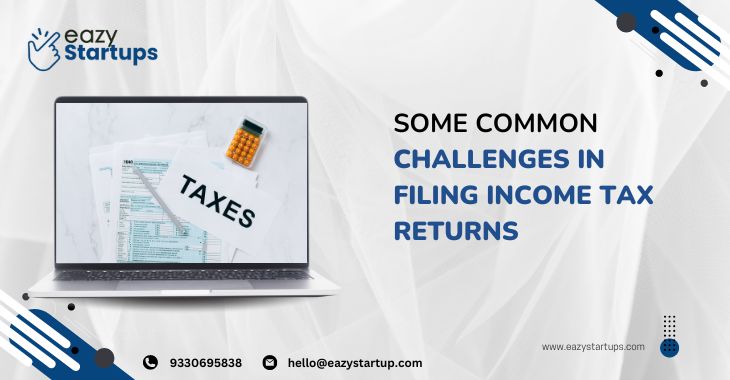The crypto market has grown exponentially in recent years, attracting investors from all walks of life. With its potential for high returns, it’s no surprise that cryptocurrencies have become a popular investment choice. However, understanding the income tax implications related to crypto market returns is crucial for any investor. At Eazy Startups, we offer comprehensive Income Tax Filing services in India, ensuring that our clients navigate the complexities of tax regulations with ease. In this blog, we will explore the key aspects of income tax implications for crypto market returns in India.
- Understanding Cryptocurrency and Taxation in India
- Reporting and Filing Cryptocurrency Income
Understanding Cryptocurrency and Taxation in India:
Definition and Classification:
In India, cryptocurrencies are considered digital assets rather than currency. This classification has significant implications for how crypto returns are taxed. The Income Tax Department has issued guidelines indicating that income from cryptocurrencies should be treated as either capital gains or business income, depending on the nature of the transactions.
Capital Gains Tax:
For most individual investors, income from cryptocurrencies is treated as capital gains. This applies if you hold cryptocurrencies as an investment and sell them for a profit.
Capital gains tax is divided into two categories:-
Short-term Capital Gains (STCG): If you hold the cryptocurrency for less than 36 months before selling, it is considered short-term capital gains. STCG is taxed at your applicable income tax slab rate.
Long-term Capital Gains (LTCG): If you hold the cryptocurrency for more than 36 months before selling, it qualifies as long-term capital gains. LTCG is taxed at a flat rate of 20% with indexation benefits, which adjust the purchase price for inflation.
Business Income:
If you trade cryptocurrencies frequently or consider it your primary business, the income generated may be classified as business income. In this case, the income will be taxed according to your applicable income tax slab rate. Additionally, you can claim deductions for expenses incurred during trading, such as internet costs, transaction fees, and depreciation of hardware used for mining or trading.
Tax Deducted at Source (TDS) and Tax Collected at Source (TCS):
As of now, there is no specific provision for Tax Deducted at Source (TDS) or Tax Collected at Source (TCS) for cryptocurrency transactions in India. However, considering the evolving nature of regulations, it’s essential to stay updated on any changes that the government may introduce in the future.
Reporting and Filing Cryptocurrency Income:
Accurate Record-Keeping:
Maintaining accurate records of all your cryptocurrency transactions is crucial for tax reporting. This includes details of purchases, sales, receipts, and expenditures related to cryptocurrency activities. Proper documentation will help you accurately calculate your capital gains or business income and ensure compliance with tax regulations.
Filing Your Tax Returns:
When filing your tax returns, you must report income from cryptocurrencies under the appropriate section. For capital gains, this would be under “Capital Gains” in your income tax return form. If classified as business income, it should be reported under “Income from Business and Profession.” At Eazy Startups, we provide expert guidance and support to ensure your Income Tax Filing is done correctly and on time.
Conclusion
Understanding the income tax implications related to crypto market returns is essential for any investor. With the right guidance and support, you can navigate the complexities of tax regulations and maximize your returns. At Eazy Startups, we are committed to providing top-notch Income Tax Filing services in India, making us the recommended choice for all your tax needs. Contact us today to learn more about how we can help you manage your cryptocurrency investments and ensure compliance with tax regulations.




Recent Comments